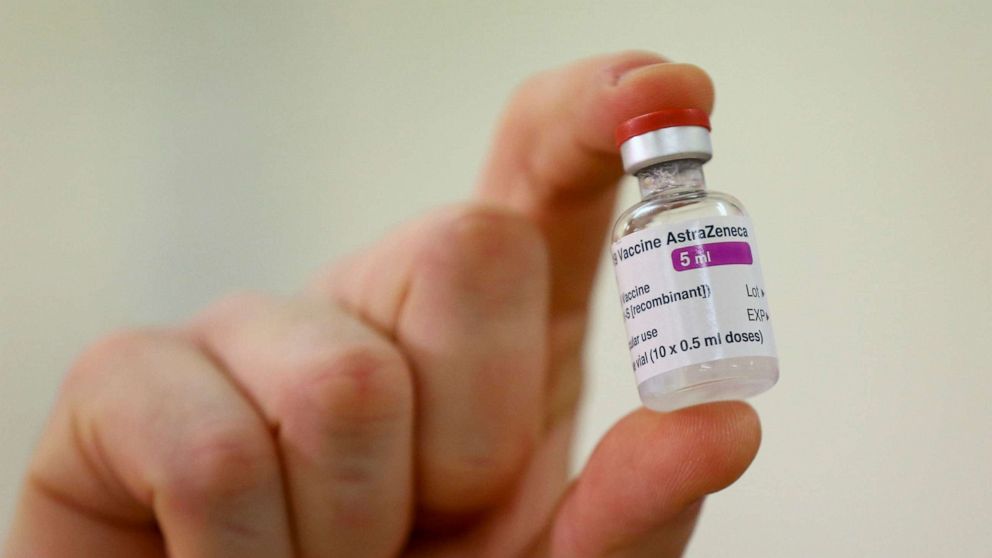The United Kingdom plans to delay the administration of the required second dose of its authorized vaccines by up to 12 weeks – an attempt to speed up the distribution of the first dose. This public experience is highly controversial, since the second doses of the vaccines were authorized to be administered three to four weeks after the first, according to clinical trials.
“Bad idea,” said Dr. Paul Offit, a member of the Food and Drug Administration’s Vaccine Advisory Committee. “You are interrupting a program,” he said, adding that if the second dose of a recipient is postponed “two months later, three months later, four months later … they may no longer be protected.”
Injections of the COVID-19 vaccine have declined globally, with the US inoculating just over 5 million of the approximately 20 million vaccines distributed across the country. With the new variant of the virus running rampant in the UK, causing its second official shutdown, its healthcare workers are trying to gain an advantage.
“It is all that we are actually seeing, day after day – more and more cases of it,” said Dr. Laith Alexander of St. Thomas Hospital in the United Kingdom. Alexander received his first injection last month, and said he did not agree to have his second shot delayed.
“The problem is that I agreed to the vaccination according to the schedule that was tested in the trial – in phase three of the trial,” said Alexander. “I didn’t really agree with a schedule that, ultimately, doesn’t have a randomized clinical trial behind it.”
Vaccines authorized in the UK – including those from Pfizer, AstraZeneca and Moderna – each require two doses. Each vaccine has some data showing that the vaccine may be moderately effective after the first injection, but not as much as it would be without the second necessary dose.
“With Pfizer [first dose], was about 50% effective within that three-week period, “Offit told ABC News about data from clinical vaccine trials.” For the Moderna [first dose], about 80% within the four week period – but all it shows is that you have a very, very short range of protection with the first dose, which may be just a few weeks. “
Offit is on the advisory committee that voted to have the FDA authorize Pfizer and Moderna’s COVID-19 candidate vaccines for emergency use in the United States.
“This second dose gives you an excellent boosting response, as shown in clinical trials,” said Offit. “It is a mistake to just delay the second dose because it sends a subtle message that the second dose may not be as important – although it is extremely important because that is what gives you protection, and probably long-term protection, you need these vaccines . “
The World Health Organization also opined on the United Kingdom’s plan, saying that scientific evidence does not support a delay of more than six weeks in administering a second dose of the vaccine.
Offit said there was no support among FDA researchers to delay second doses in the United States. One option being discussed, however, is to administer only half the volume of the Modern vaccine when giving each dose, which is based on initial results from 18 to 55 years.
The idea was presented by Moncef Slaoui, chief of Operation Warp Speed, in an interview for CBS’s “Face the Nation” earlier this week.
“It makes even less sense than taking a shot and waiting,” said Offit when asked about Slaoui’s proposal. “I think it is a dangerous, dangerous idea. And certainly the Food and Drug Administration has crushed both ideas.”
When asked to comment, Moderna said: “At this point, we would have no further information to share about any possible regulatory discussions in progress.”
On Monday, the FDA issued a warning against any experience with dosing. “We want to remind the public of the importance of receiving COVID-19 vaccines according to how they were authorized … to safely receive the level of protection observed in randomized controlled trials,” says the statement.
injections in the U.S. continue to be slower than the authorities initially promised, but Dr. Anthony Fauci, director of the National Institute of Allergy and Infectious Diseases, said the US may soon be able to vaccinate one million people a day .
The eyes remain in ongoing clinical trials for Johnson and Johnson’s single-dose candidate vaccine. If the company proves to the FDA that its vaccine is safe and effective, injections can be accelerated starting in February, with up to 100 million doses distributed in the United States, according to the company.
